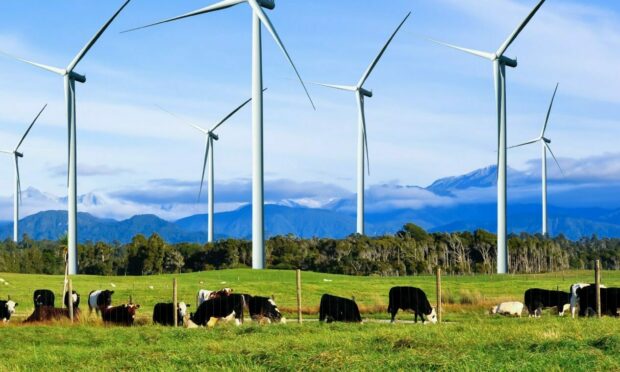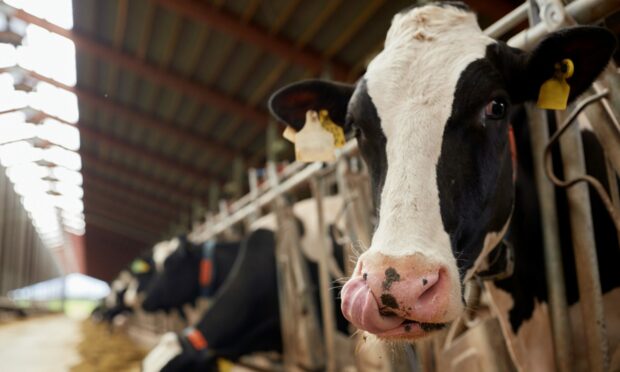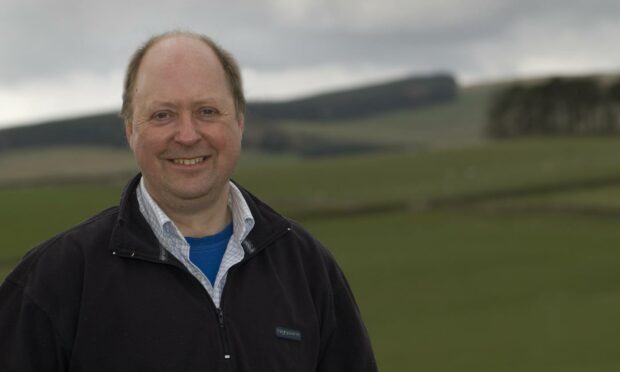All farms across Scotland should form emissions reduction contracts with Government from 2024 onwards, according to the Farming For 1.5 Degrees Inquiry.
The independent inquiry, which was established in 2019 by farmers’ union NFU Scotland (NFUS) and food body Nourish Scotland, made the recommendation in its final report outlining how the farming sector can reduce its emissions while maintaining food production.
It said the “reduction contracts” should offer farmers two options – support for precision farming or nature value farming.
Other recommendations from the inquiry include: the establishment of a “high level, transparent, science-informed climate and nature literate transformation group” for future emission-reducing agricultural policies; separate reduction targets for individual gases; and an agreement that food production must be maintained while reducing total emissions from the sector.
The inquiry’s gas reduction targets are a 25% reduction in methane emissions by 2032 through a combination of better animal health, improved genetics, early adoption of feed additives and better management of manures.
It then proposes a 50% reduction in methane emissions, from current levels, by 2045 through low methane breeding and widespread adoption of feed additives.
The inquiry also calls for a 25% reduction in nitrous oxide emissions by 2032 through a combination of more efficient use of bagged nitrogen, manures and slurries, an increase in the use of legumes and the reduction of nitrogen use in the large areas of land being farmed for nature.
This will increase to a 50% reduction by 2045 through uptake of other measures such as nutrient budgeting, yield mapping, controlled release fertilisers and variable rate applications.
“The report, built on consensus, breaks through the tired soundbites that often dominate the climate change debate and block smart solutions,” said Inquiry co-chairman and former NFUS president, Nigel Miller.
“The transformation pathway mapped out by the group is a holistic plan which balances the tree core goals – food, biodiversity and the 2045 net-zero target. It delivers for society as a whole but also provides an integrated route for farmers, crofters and land managers to deliver diverse and sometimes conflicting policy priorities.”
The inquiry also calls for “rapid uptake” in low methane breeding for cows and sheep, and for climate change mitigation options to be introduced to existing subsidy schemes, as a replacement to the current Greening rules, as soon as possible.
Farming For 1.5 also recommends the Scottish Government sets a target of 14,800 acres (6,000 hectares) for agroforestry creation every year, for a public interest test to be applied if more than 50% of an agricultural holding is set to be planted with trees, and for the trading of carbon in Scotland’s soils to be stopped until further notice.
Current NFUS president, Martin Kennedy, welcomed the findings from the report and said: “This Inquiry’s findings provide another unequivocal marker in setting the required policy direction as its recommendations dovetail with those of the Scottish Government’s farmer-led climate change sector groups and NFU Scotland’s own vision for delivering change.”
A Scottish Government spokesman said: “Scotland is a world leader on climate action and this report will inform how a thriving farming sector can contribute to our net zero ambition and help tackle biodiversity loss.
“We will establish an integrated implementation board for development of new proposals for sustainable farming support within the first 100 days of government.”


